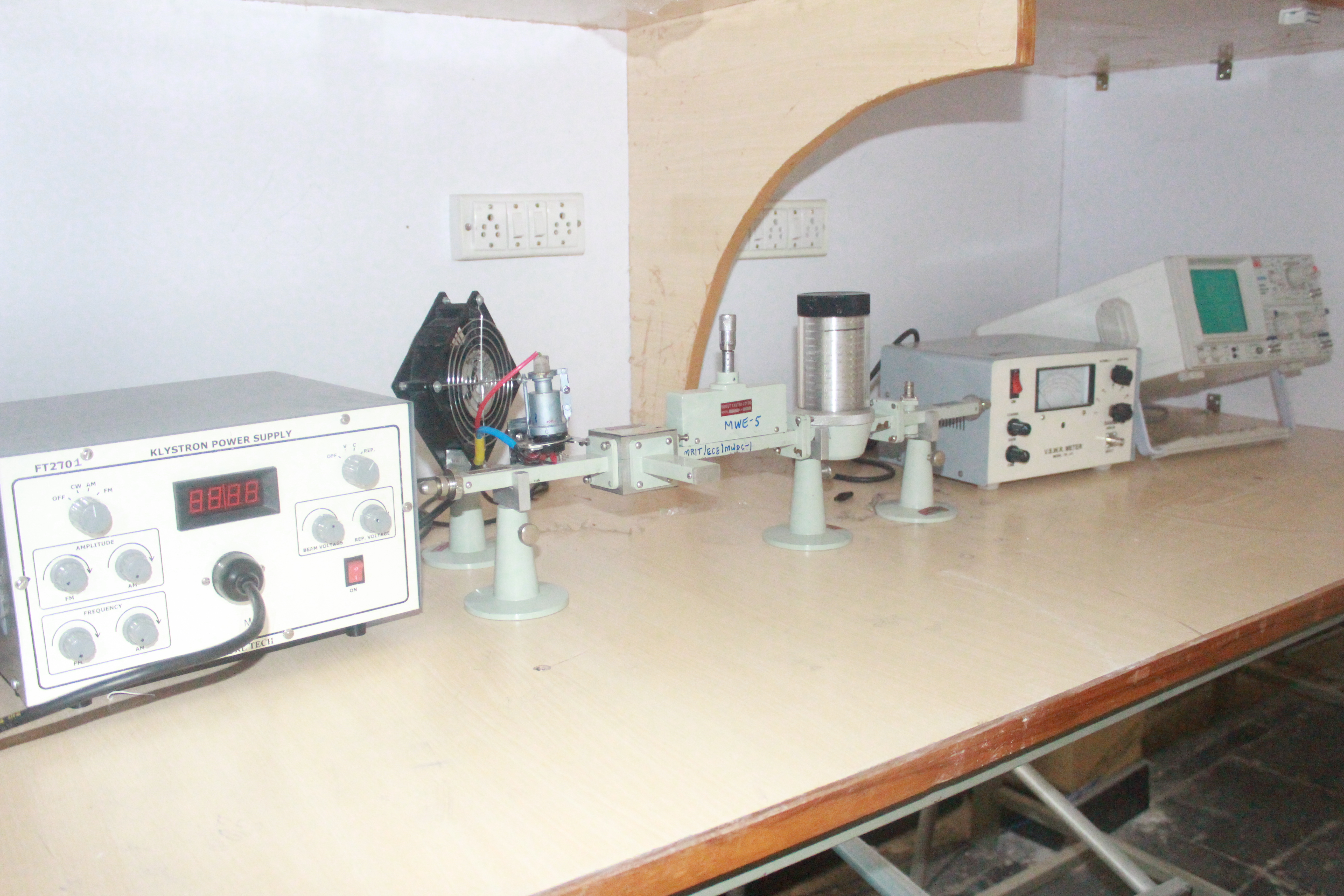
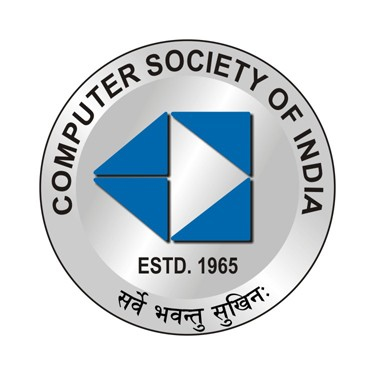




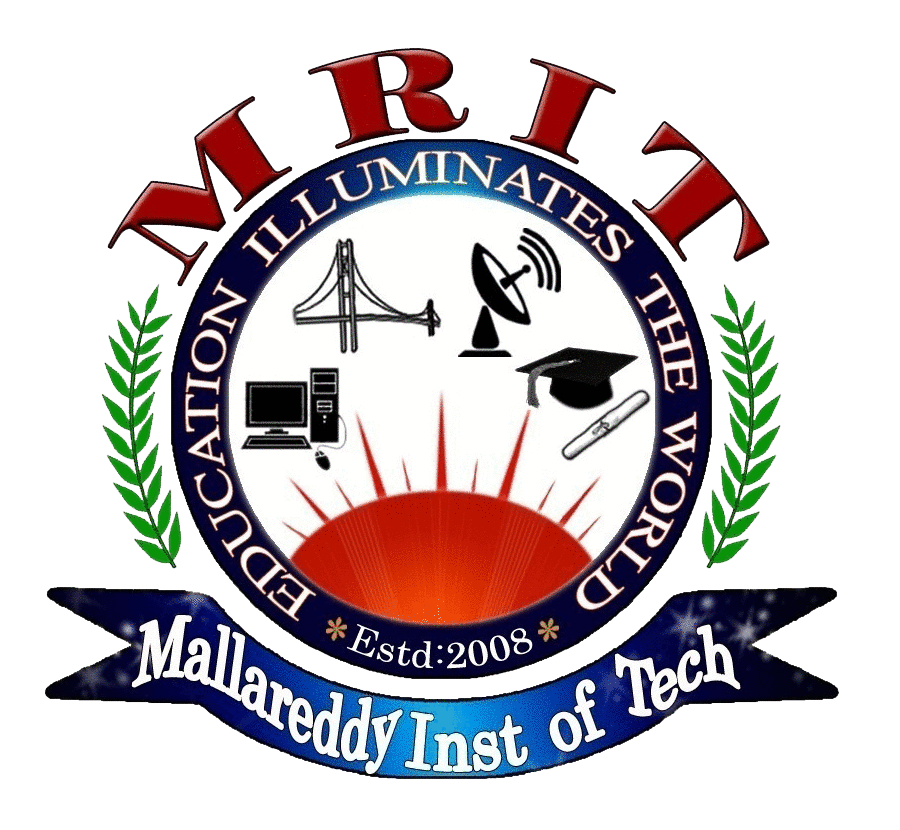






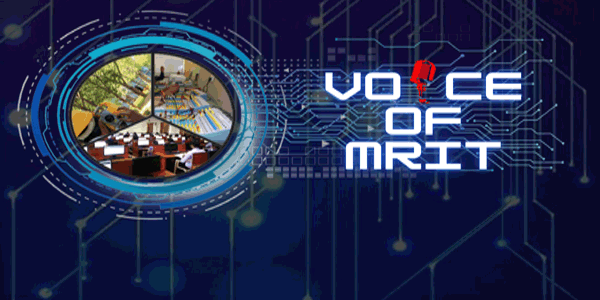



All laboratories are well equipped, well maintained and enable not only conduction of curriculum - oriented experiments but also to carry out project and research oriented works.
The Electronic Circuits laboratory is designed to enable students to comprehend main characteristics of simple electronic devices such as diodes and transistors. The laboratory session is synchronized with the lecture in such a way that they complement each other. Items in the lab manual include introducing the circuit simulator SPICE and its usage to carry out DC, AC & transient analysis. Practical circuits are built to investigate signal & Zener diode circuits, bipolar transistor circuits under DC and AC conditions as well as small signal amplifiers. Filters and oscillators using discrete components are built.
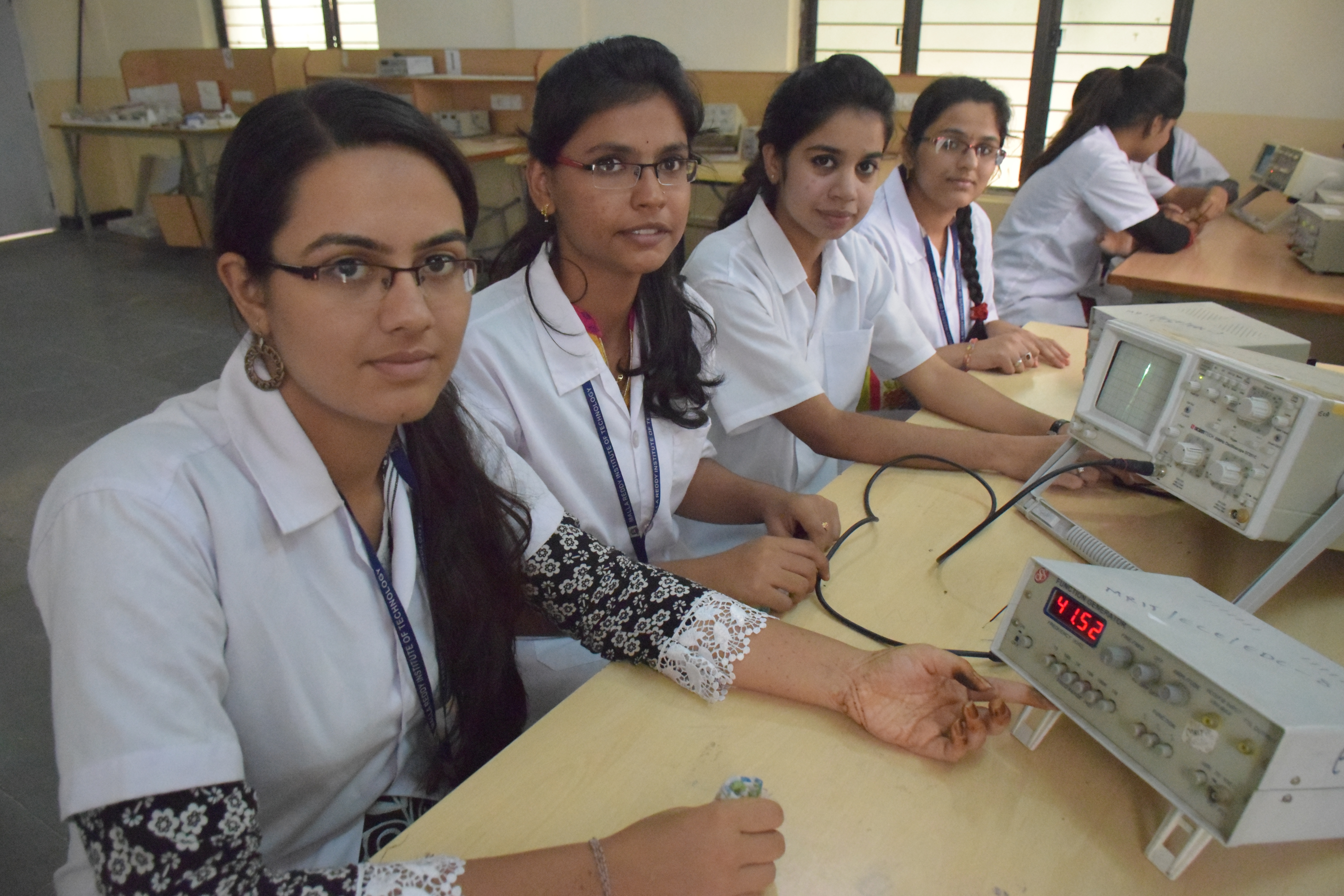
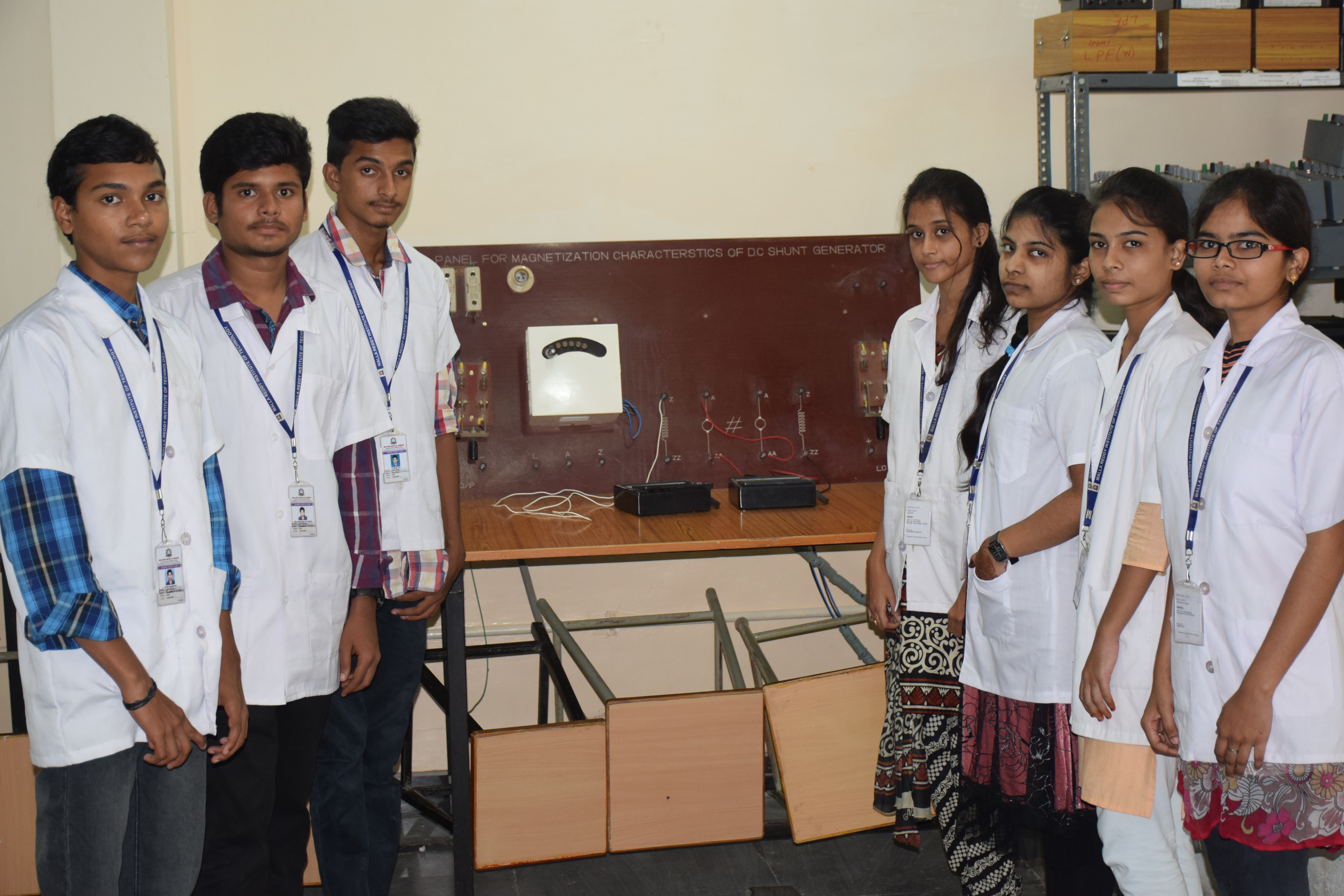
Network Theory laboratory is one of the important lab of school of Electronic. This laboratory would enable students to understand the basic principles of electrical engineering. It enables the students to use testing and measuring instruments such as function generators, oscilloscopes, and digital multimeters to analyze a DC circuit by using different analysis techniques. These include Ohm's Law, KCL, KVL, nodal analysis, mesh analysis, Thevenin's and Norton's theorems as well as the transient analysis of RL, RC circuits and RLC circuits.
The communications laboratory helps the students to understand the basic principles of communication systems by practical module systems. This laboratory includes experiments both in analog communication and digital communication. The experiments are designed in such a way that the theoretical concepts introduced in lectures are re-discussed and implemented a practically. The experiments deal with the analog communication basics such as Filtering, amplitude modulation, super heterodyne receiver, frequency division multiplexing, frequency modulation, phase locked loop, pulse analog modulation, pulse code modulation, signal to noise ratio, and signaling techniques: PSK, FSK, DPSK, QPSK, and MSK.
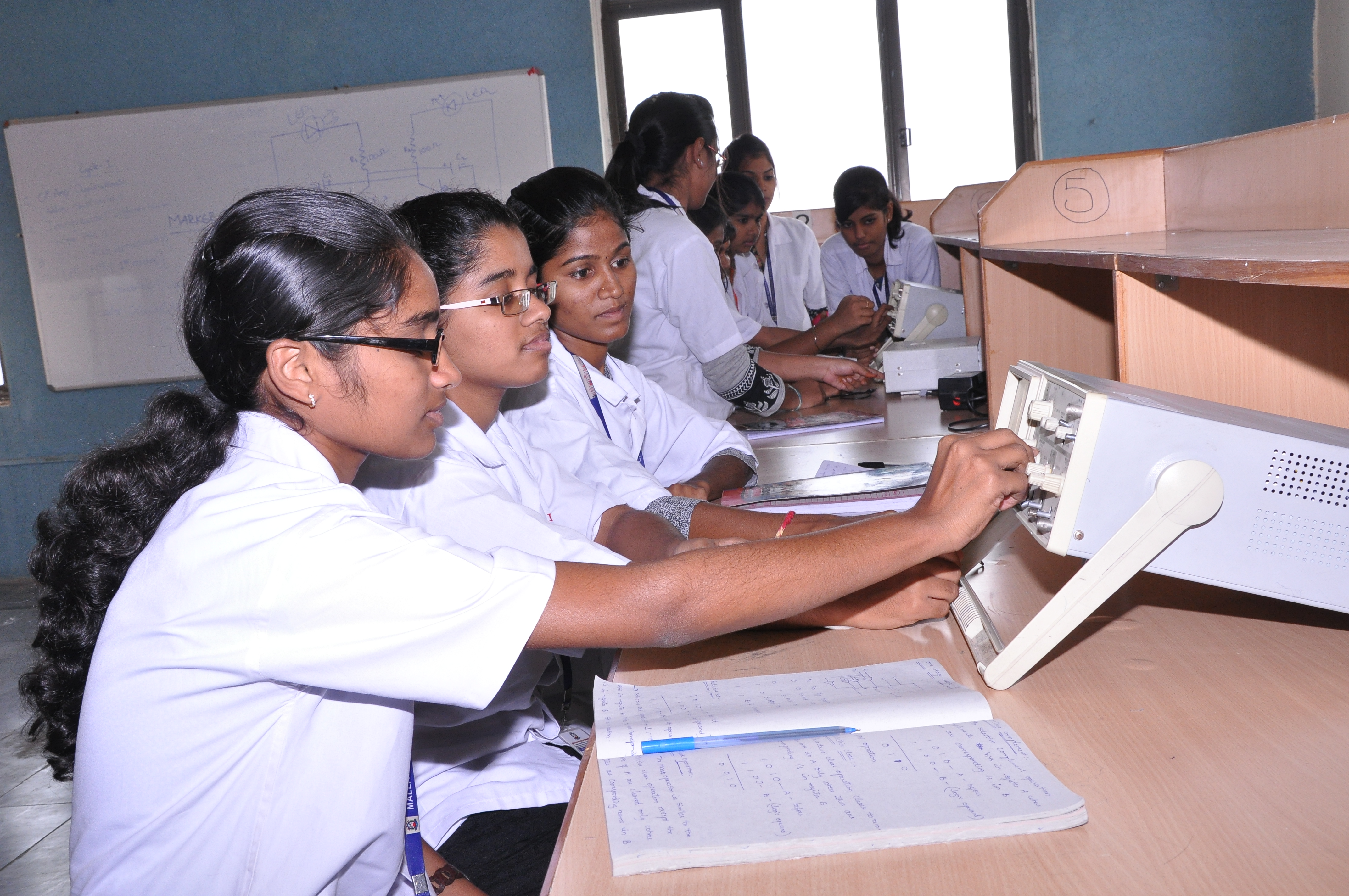
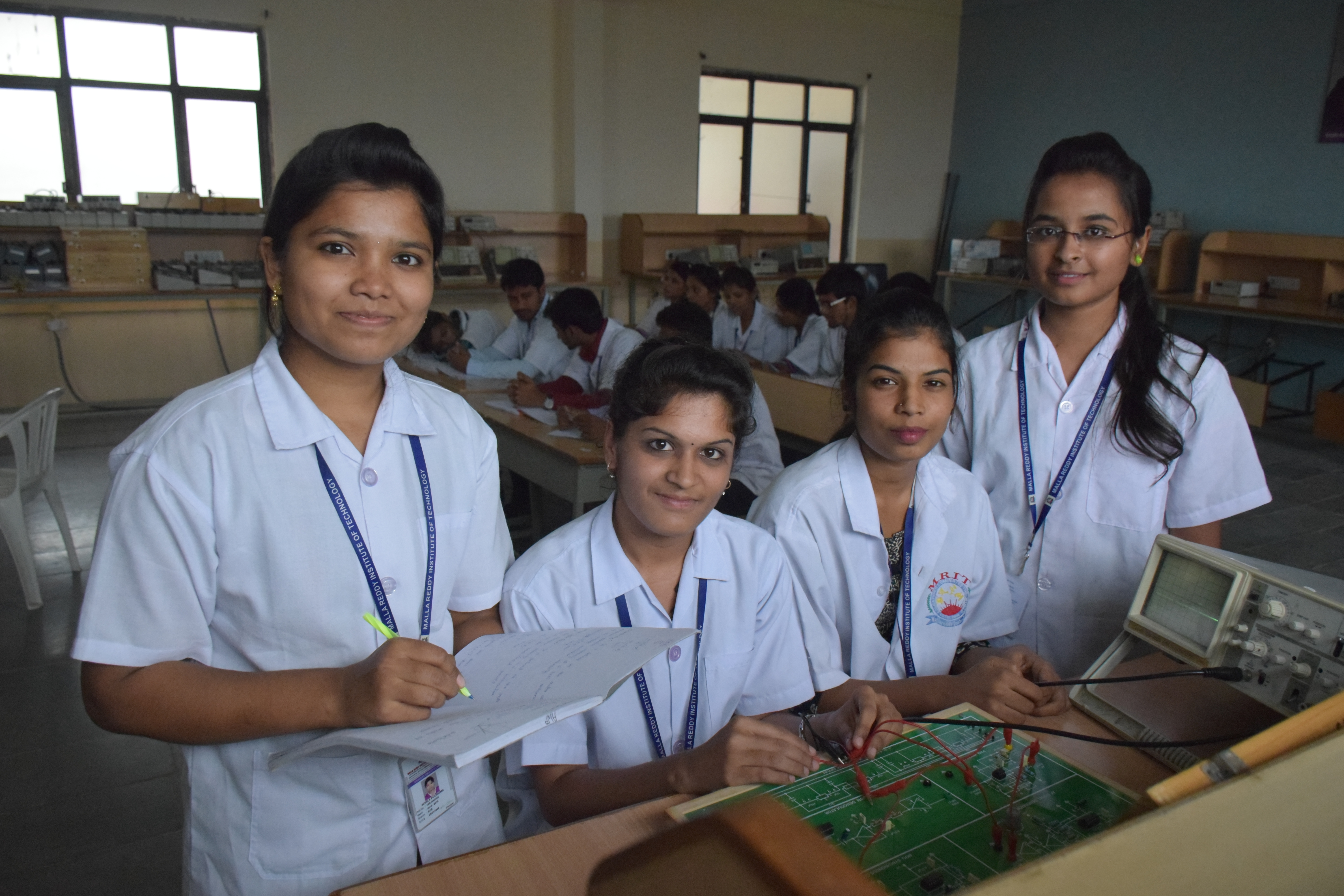
The IC applications laboratory is designed to enable students to understand the functioning of Operational Amplifiers, some important ICs IC741, IC 555 etc. Circuits employing the op amps as the active element are constructed to perform as amplifiers, integrators, filters, relaxation and sinusoidal oscillators.
The microprocessor and Interfacing laboratory is equipped with sophisticated state-of-art tools for teaching and experimentation in the area of microprocessors. This laboratory will provide the students a perfect introduction to the world of Microprocessors and to provide hands-on experience essential to the real understanding of microprocessors architecture and it's interfacing to the peripheral devices. The experiments are designed to provide the students with the design principles of microprocessor systems and real time programming. Also students use the facilities in this laboratory for the realization of their miniprojects and course project work. The course accomplishes this by using microprocessor kits, simulators and software development systems.
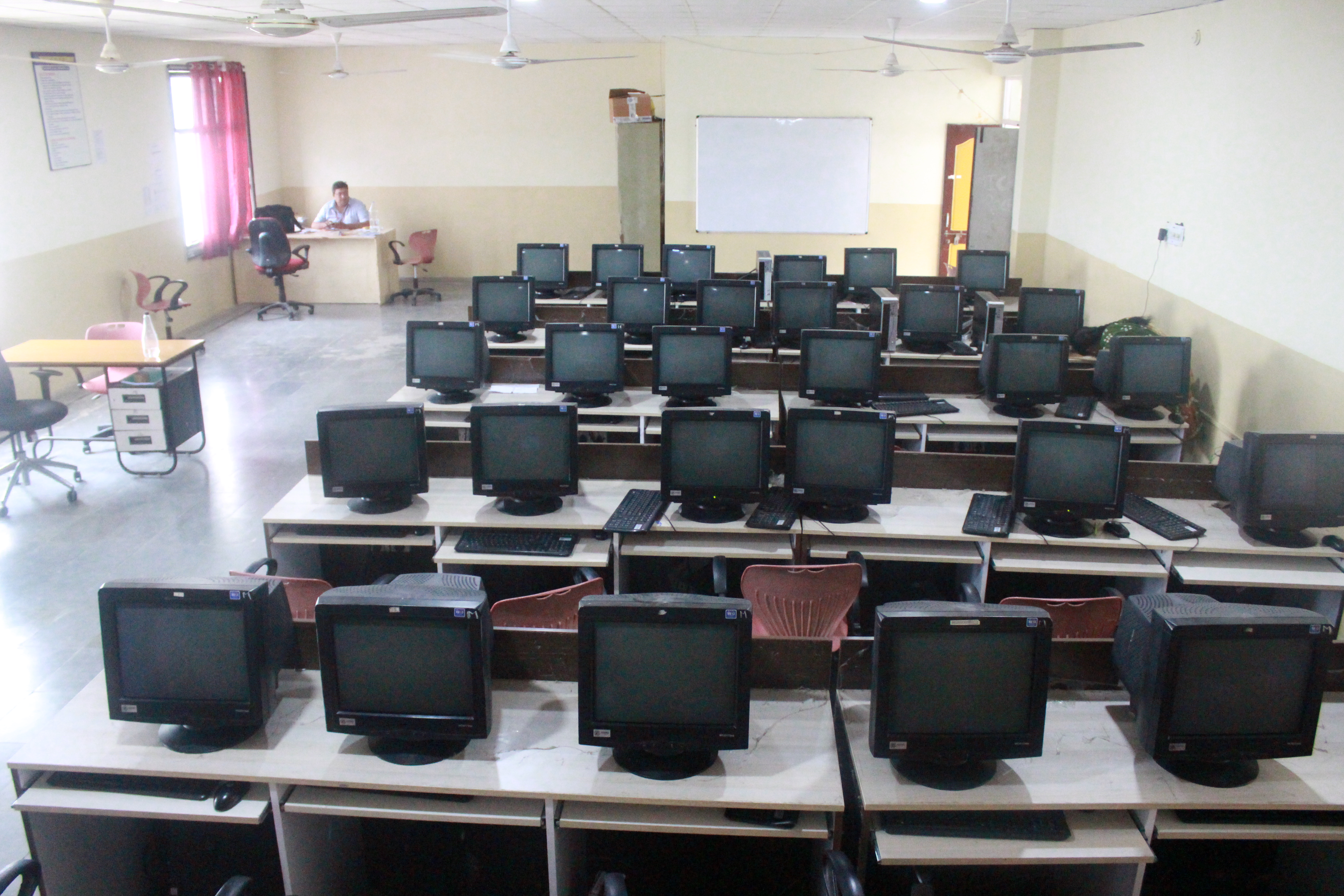
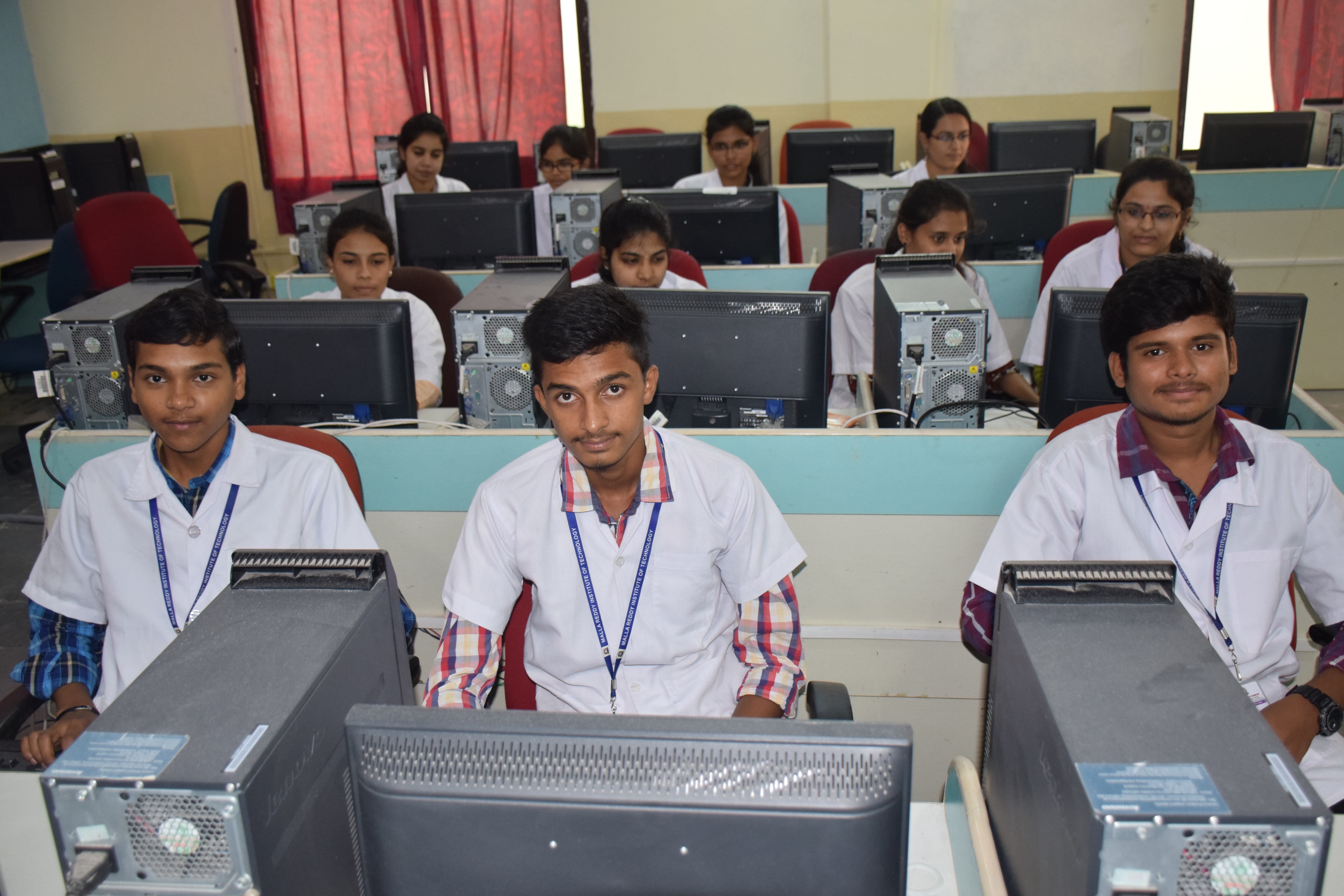
Integrated Circuit chips have had a monumental impact on our society, changing the way we work, play and communicate. Our VLSI Laboratory provides advanced EDA tools for the students to learn the fundamentals of Digital & Analog Integrated Circuit Design, Simulation and Layout using state-of-the art CMOS process technologies. This laboratory introduces the students to activities involved in the development of mask layout for the designs as well as performing different analysis and simulations of the design. In addition to the regular Laboratory sessions, these goals are achieved by assigning projects to the students, which will enable them to put some of the concepts introduced in the lectures into practical use. These projects will consist of hands-on experiments, which will typically be executed by students in small teams.
This DSP laboratory is designed to supplement the lectures on the subject. The laboratory experiments are carried out on a computer. The programming language used is MATLAB, widely used for high performance numerical computation and visualization. There is also a provision for the student to perform real time implementation of DSP algorithms using Texas Instruments processors like TMS320C6713. This laboratory will also be useful to carry out projects related to DSP implementations.
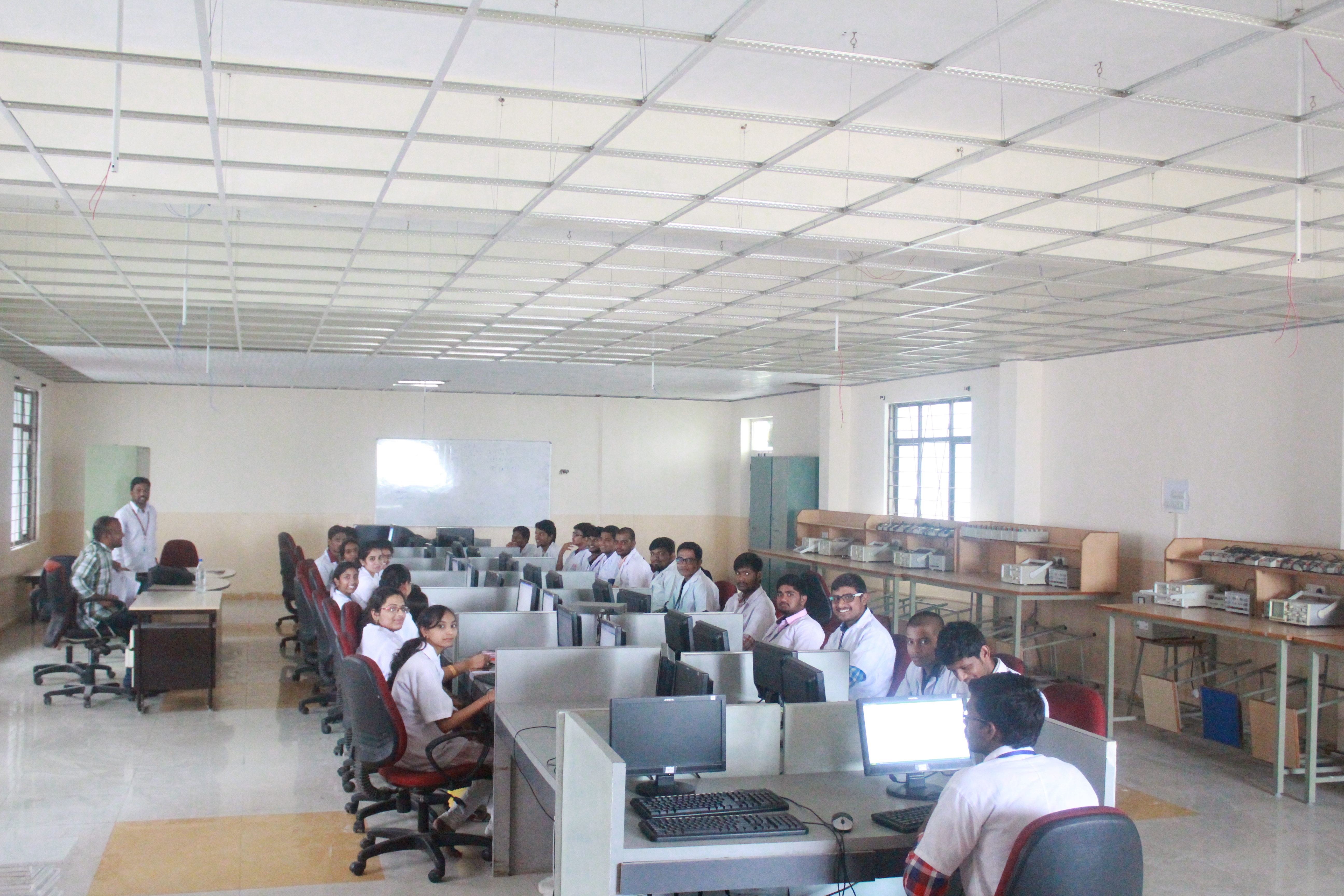
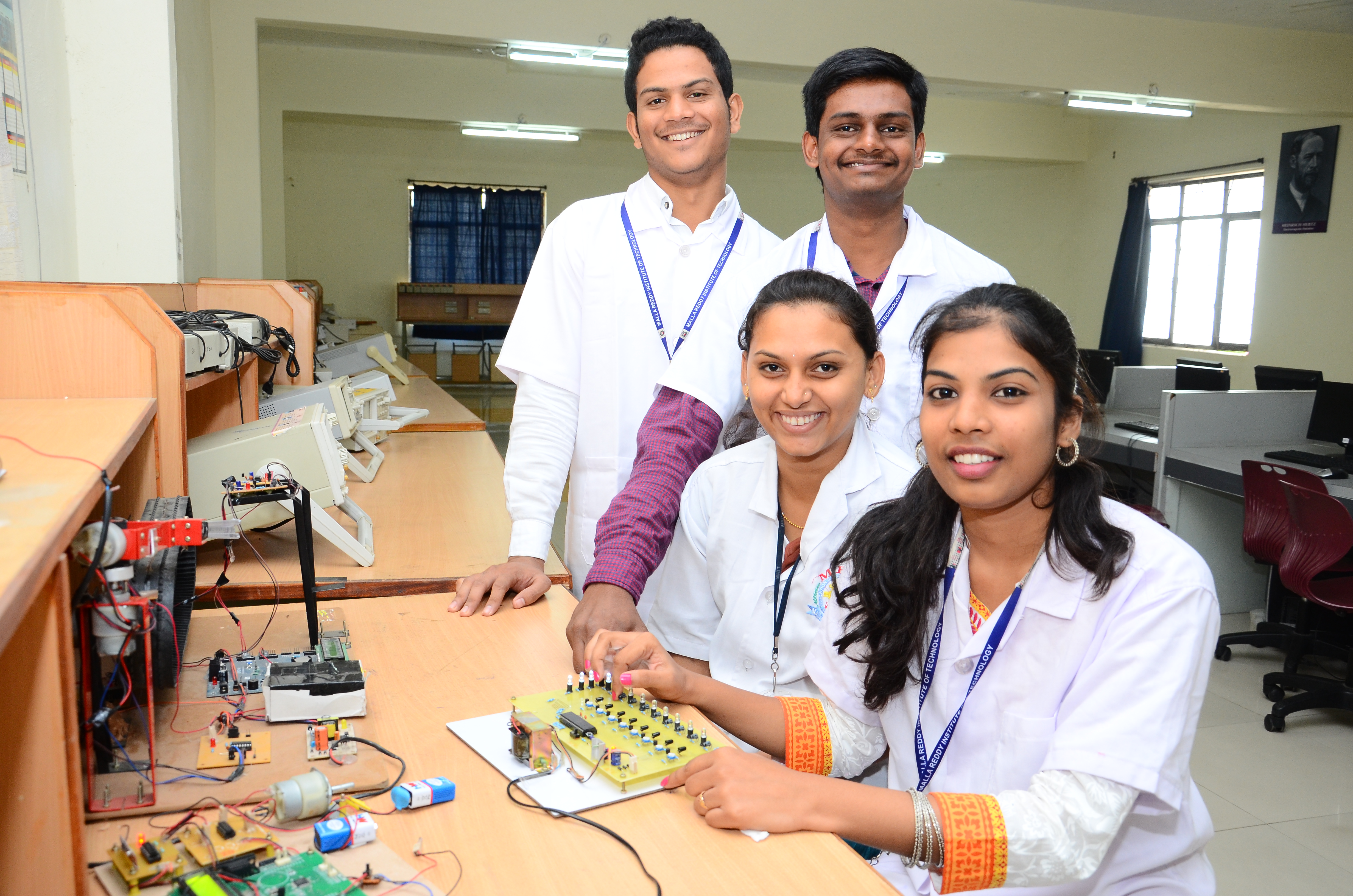
Study of the basic architecture of a microcontroller including its applications in a microcontroller system. Implementation of the principles of microprocessing, interfacing and total system design by implementing projects. Application of top-down design to microcontroller software development in assembly language and C. Introduction into the evaluation of hardware and software trade-offs. This lab will enable students to apply the theoretical principles of embedded system course. It will give hands-on experience with microcontroller applications and interfacing with basic solid state input/output devices, D/A and A/D converters and LED & LCD displays.
The laboratory has good microwave bench to train the students in the field of microwave engineering. Apart from other equipment Gunn oscillators and Klystron oscillators are available for practicals. The lab is also equipped with highly sophisticated equipment for optical fiber study.
